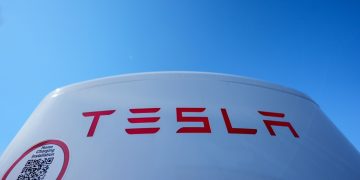In a surprising turn of events, several far-right Twitter influencers have emerged as some of the earliest beneficiaries of Elon Musk’s controversial monetization scheme on the social media platform. The move has sparked a wave of criticism and raised concerns about the impact of such a scheme on the dissemination of extremist ideologies.
Elon Musk, renowned entrepreneur and CEO of Tesla and SpaceX, recently introduced a monetization feature on Twitter, allowing users with a large following to charge their followers for access to exclusive content. While the move was intended to provide an additional revenue stream for influential individuals, it has inadvertently attracted attention due to the participation of far-right figures.

These far-right influencers, who have garnered significant followings by promoting divisive narratives and espousing extremist views, seem to have swiftly capitalized on the monetization opportunity. By locking exclusive content behind paywalls, they have effectively turned their online presence into a profit-making venture, sparking concerns about the normalization and amplification of dangerous ideologies.
Critics argue that this development is particularly alarming due to the potential implications it may have on the spread of hate speech, misinformation, and radicalization. With the newfound financial incentive, these influencers have the means to further cultivate and expand their following, potentially perpetuating harmful narratives and deepening societal divisions.
While Twitter has taken measures to combat the spread of harmful content and misinformation on its platform, the introduction of the monetization scheme has raised questions about the company’s responsibility in regulating the content shared by influential users. Some argue that tighter restrictions and content moderation measures are needed to prevent the proliferation of extremist ideologies under the guise of monetization.
In response to the controversy, Twitter has stated that it will be closely monitoring the use of the monetization feature and will take appropriate action against users found to be violating its policies, including those who engage in hate speech or promote violence. However, critics argue that proactive measures should have been implemented prior to the launch of the monetization scheme to prevent its exploitation by individuals with extremist agendas.
The involvement of far-right influencers in Elon Musk’s monetization scheme has reignited the debate over the responsibilities of social media platforms in curbing the dissemination of harmful ideologies. It serves as a reminder of the challenges faced by online platforms in striking a balance between free speech and preventing the spread of hate speech and radicalization.
As the situation unfolds, it remains to be seen how Twitter will address the concerns raised by this unexpected turn of events. The case highlights the need for continued vigilance and proactive measures to ensure that monetization features do not inadvertently amplify and reward harmful content, while still offering opportunities for legitimate and responsible content creators to thrive.












